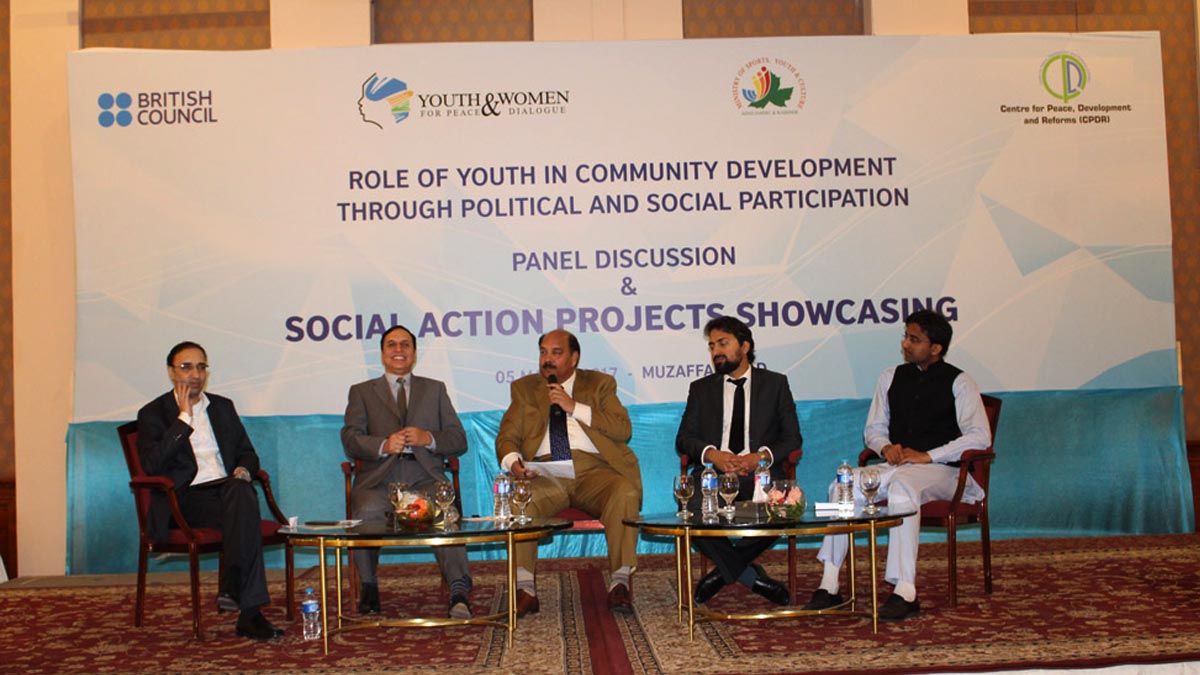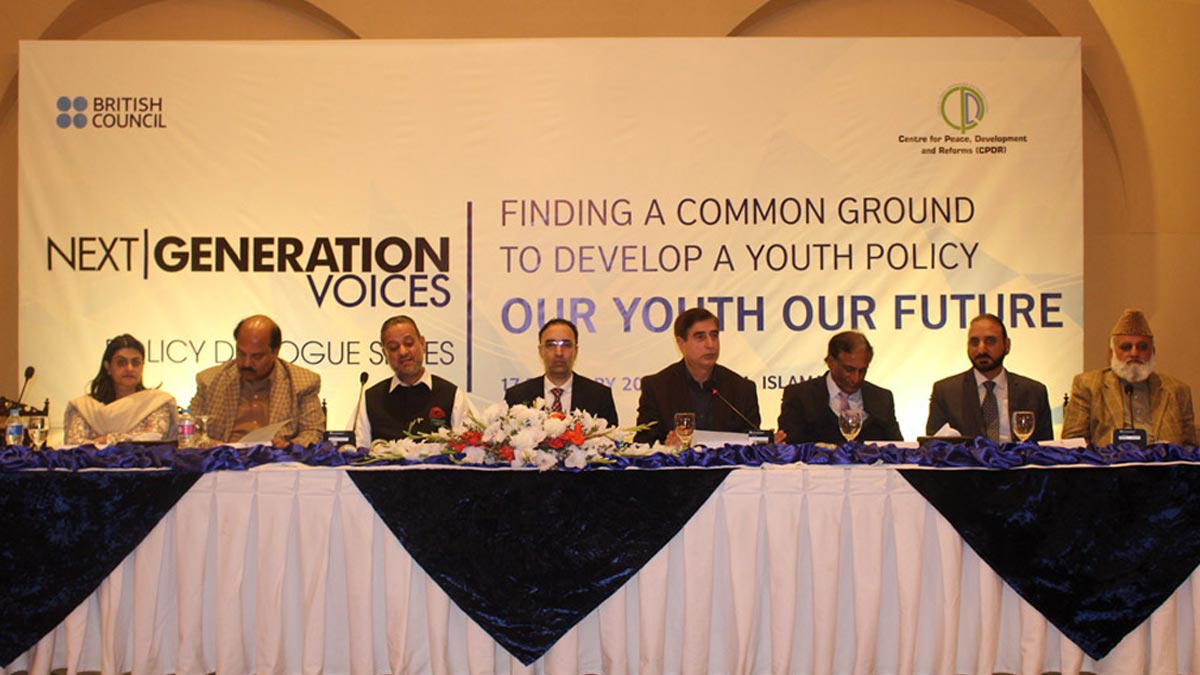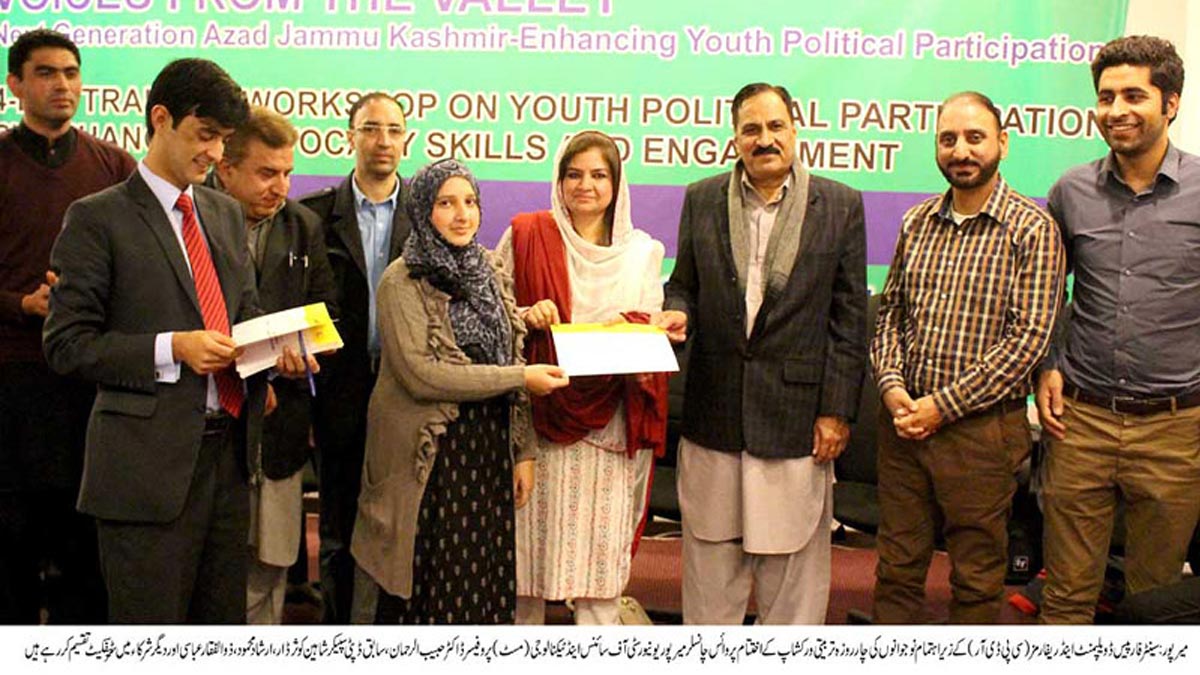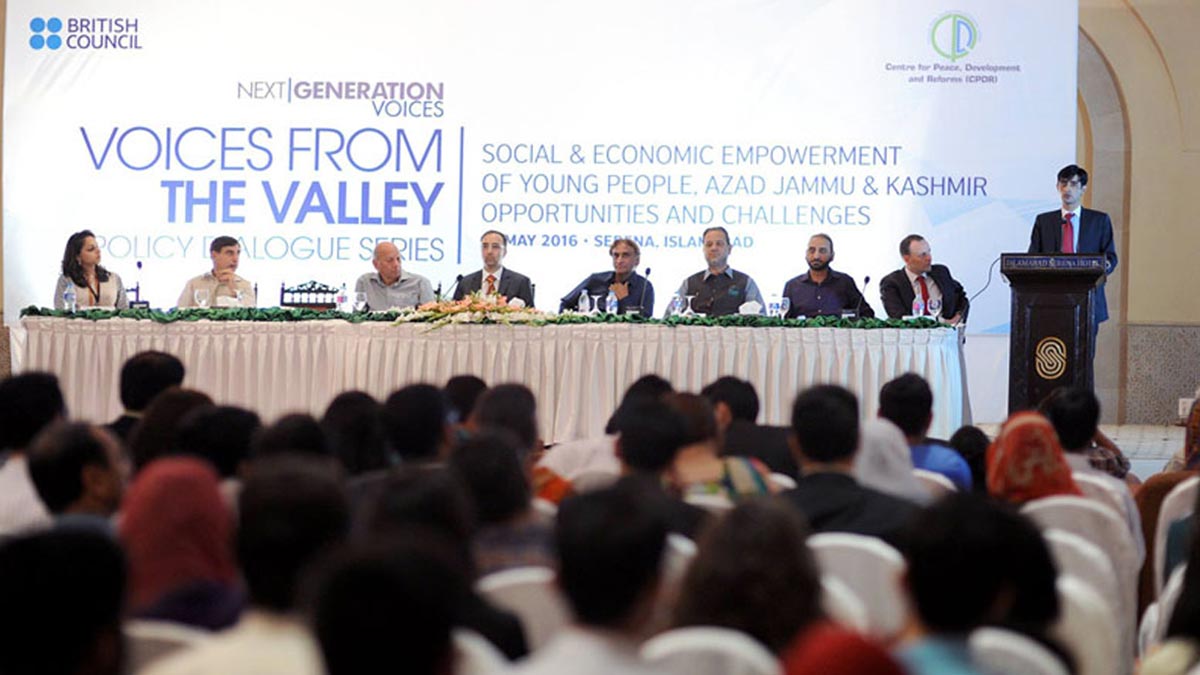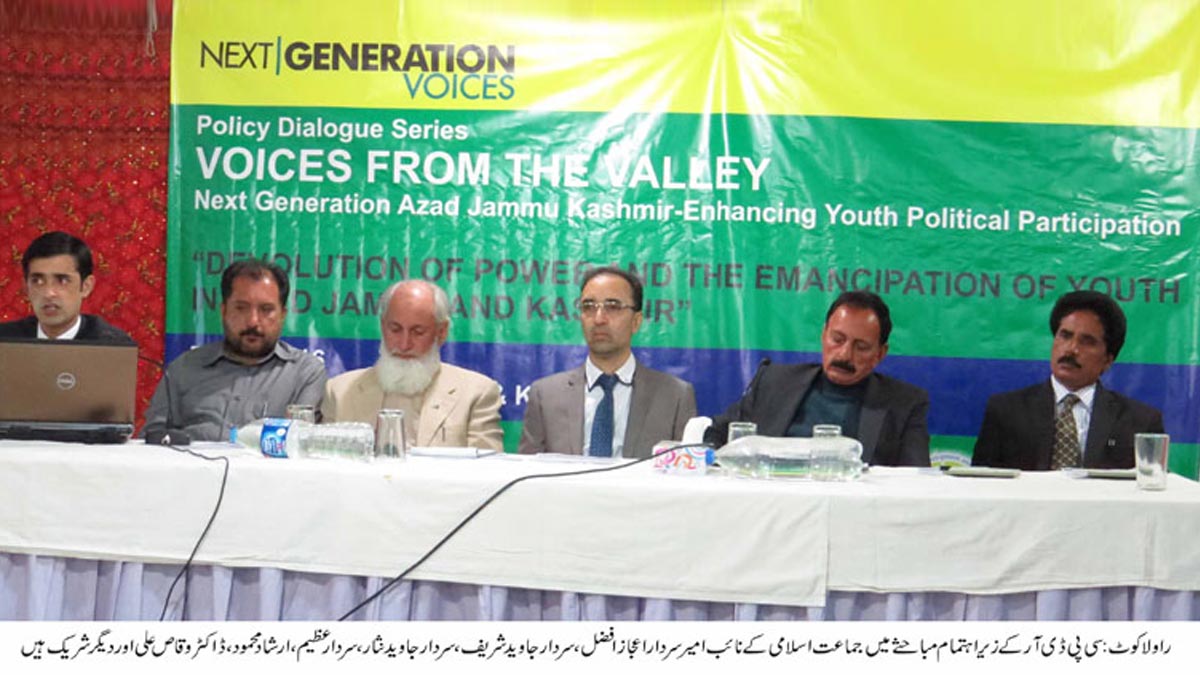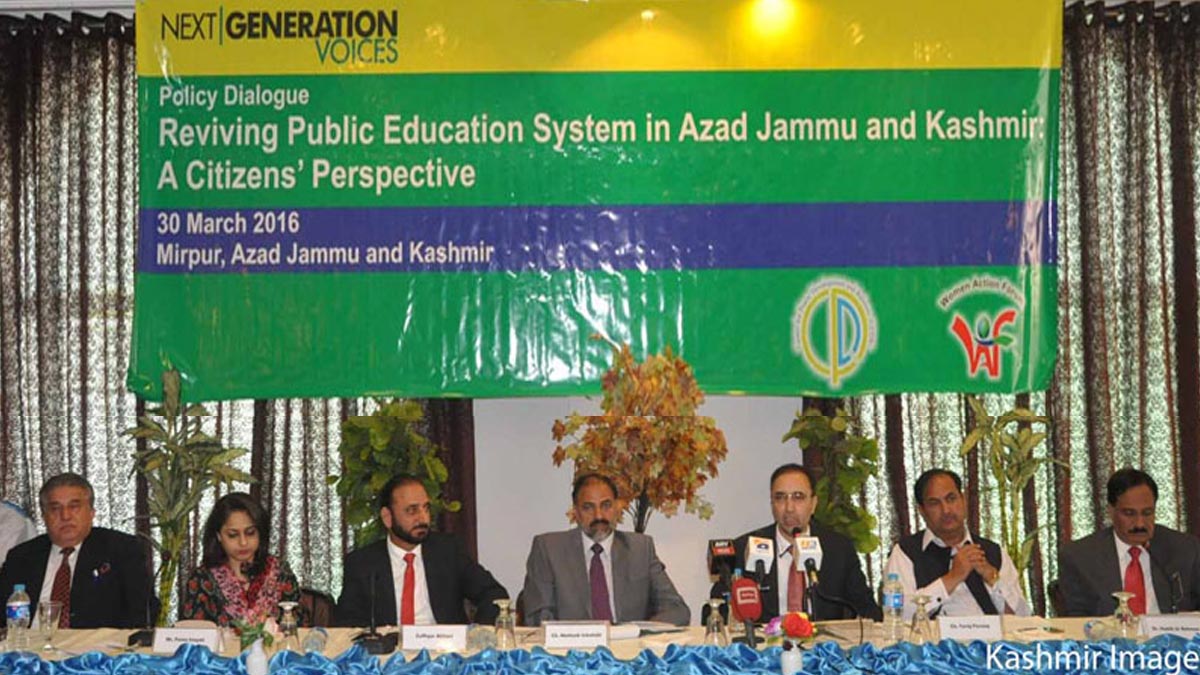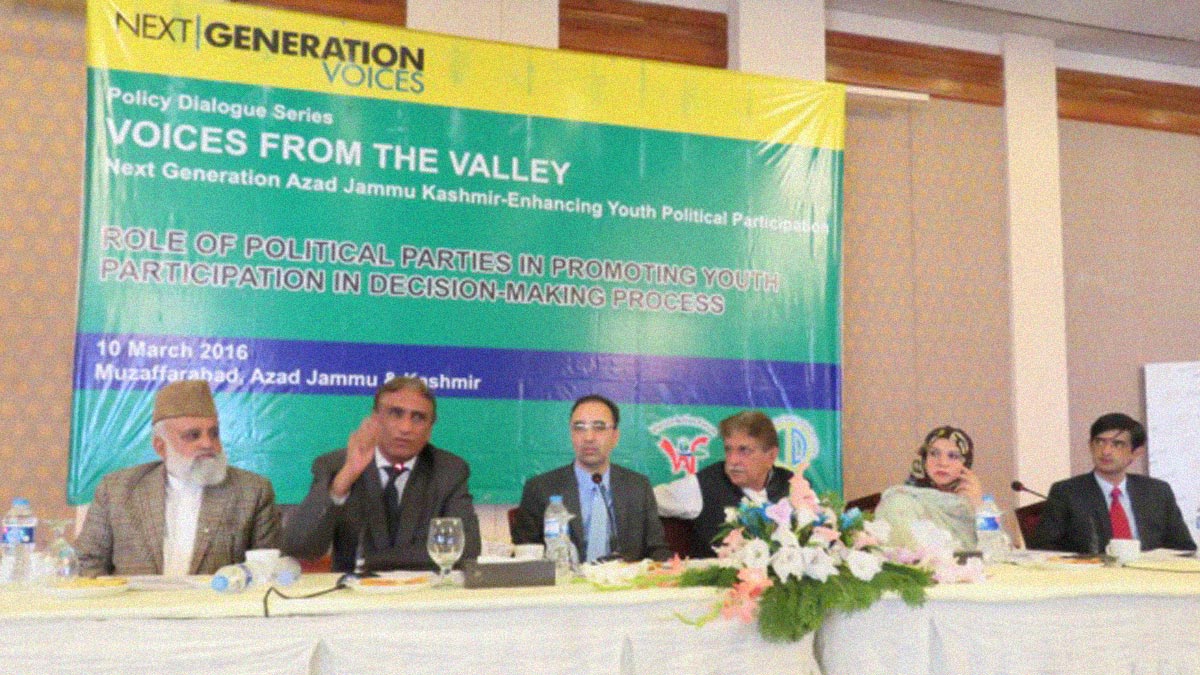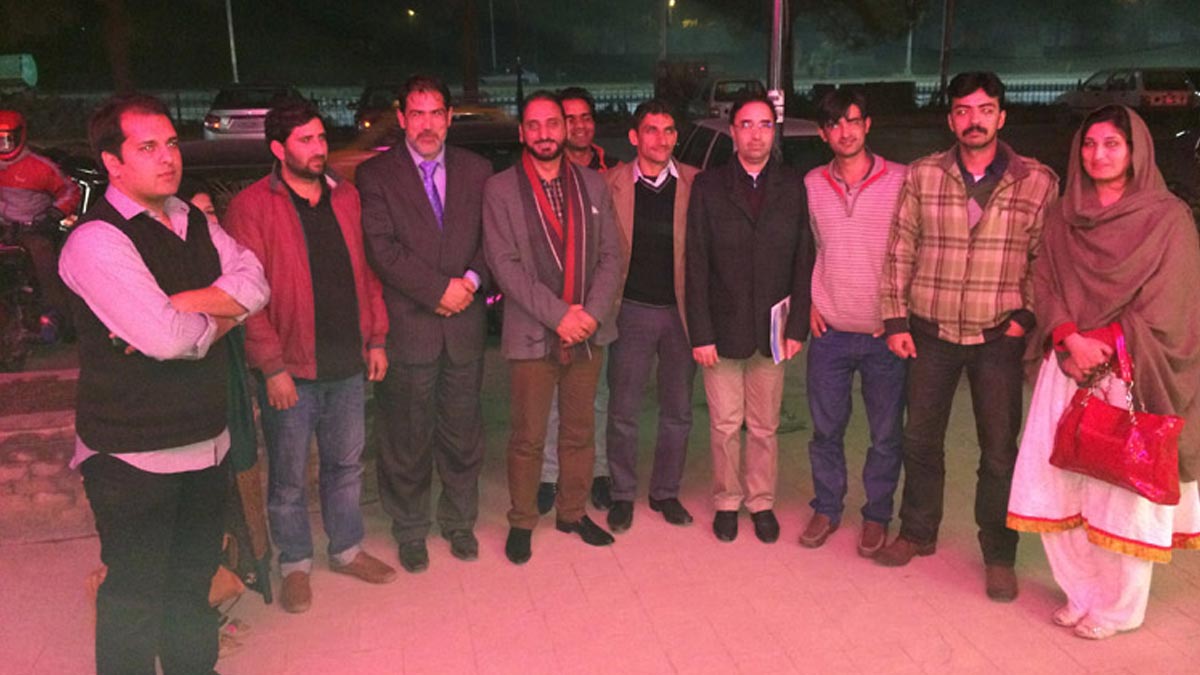
- October 14, 2020
- @admin
- 0
- Ayesha Gardazi
If an outsider were to walk into that hall with no idea of what was going on there, he would have mistaken that group from two supposed enemy countries for a bunch of old friends meeting after ages.
Such was the atmosphere where I found myself on the morning of 12th July.
RPI-Regional Institute of Peace in collaboration with USIP-United States Institute of Peace had the good sense to catalyze the peace process, rather resuscitate it, by organizing Pakistan-India track II bilateral dialogue themed “Beyond politics and polemics – New beginning on a difficult trail” in Islamabad, Pakistan.
Six young delegates from New Delhi had arrived in Islamabad, taking a huge step towards normalization of ties between the two countries.
The proponents of normalization of ties between India and Pakistan would have met with bitter disappointment had they chosen to sit around waiting for relations to resume on state level after the escalation of hostilities in February this year.
The bilateral relations between the neighboring states have been far from amicable since the countries returned from the brink of war in the beginning of the year but the common interest of people on both sides lies in peace hence the need for backchannel diplomacy was felt.
If I am being honest, I was concerned about how the Indian delegates might feel upon finding out that a Kashmiri was part of a Track II dialogue between India and Pakistan but it turned out that flag-bearers of peace do not hold prejudices.
Walking into Serena Hotel on the morning of 12th July, I had great hopes for rise of peace and diplomacy but I could not have imagined the kind of exceptional warmth, goodwill and tolerance that would immediately form between the delegates from the two “arch-rival” countries.
Incidentally three of the members of the Pakistani delegation were of Kashmiri origin, including Ershad Mehmud and Qaiser Khan representing the CPDR-Centre for Peace, Development and Reforms. The Indian delegates were met with pleasant surprise upon discovering that Kashmiris on both sides of LoC vehemently root for peace between India and Pakistan.
The first session of the dialogue started with informal introduction and discussion with the delegates expressing their candid opinions on topics of mutual interest such as culture, poetry, literature, Gulzar, clothing brands, fake news, twitter trends and recent war-like situation among many other things.
By the end of the first day we had already received invitations to a dinner at the residence of High Commissioner of India and I had already made a new friend from New Delhi who is one of kindest souls I have had the pleasure of knowing.
Her sensitivity towards the Kashmir dispute and my Kashmiri identity won my utmost respect. She displayed remarkable tolerance when navigating an issue as critical as Kashmir’s.
She wished to visit Lok Virsa museum so we headed there after the session ended and that’s where an interesting incident happened. While shopping for souvenirs she could take back home, a salesperson on a handicrafts store found out that she was from New Delhi and gave her a turquoise bracelet as a token of peace.
My friend was blown away by this friendly gesture which ultimately reflected common man’s aspirations for harmony and amity in the region.
That night I had the privilege of meeting some high officials at the dinner hosted by Indian High Commissioner to Pakistan Mr Ajay Bisaria at his residence. It provided a nice setting for the delegates to intermingle further and find commonalities among themselves.
A gentleman who happens to be a diplomat at the Indian High Commission seemed to be taken aback when I introduced myself as a lawyer.
“It must be very rare to be a lawyer in an area like AJK”, he remarked. I politely corrected him and informed him that AJK’s literacy rate was in fact higher than Pakistan’s at 74%. He was surprised to know that Kashmiris are very cordial and peaceful as a nation.
On the other hand, I was happy to have found Indian friends who do not look at Kashmiris with doubt and contempt, as opposed to what one might imagine they would after years of conditioning by media and state authorities.
Day 2
The second day was a formal event with some politicians, diplomats, and retired military officials joining us. Many ideas to capitalize on commonalities and strengthen harmony were floated from both sides which were met with appreciation.
Indian delegates seem to feel at home right from the moment they set foot in Pakistan. What was incredible was that between sharing of so many different ideas and despite convening in very tough circumstances, there was not a single moment of tension in the hall.
I came to realize that the common people of India and Pakistan identify and sympathize more with each other, across the border, than they do with their respective authorities. Hostility between India and Pakistan might be in the best interest of those in who stand to gain from armed conflict but it is not in interest of the people and this fact cannot be disguised in cloak of jingoism and nationalism anymore.
Gone are the days when ‘no peace, no war’ stalemate situation was believed to be the ideal the neighboring countries could achieve. Both the nations now aspire to move forward towards sustained peace, cohesion and functional interdependence for mutual benefit and growth – economic as well as social.
What made this particular backchannel diplomacy effort stand apart from other efforts was that it was held just months after escalated military tension.
In February, India and Pakistan had come as close to war as they could without actually going to full-fledged war. Nonetheless, at the peak of tension #SayNoToWar was made a top trend in both countries.
While track II diplomacy does not supplement the need for governmental diplomacy, however, holding of a bilateral dialogue just months after conflict escalation is propitious in itself and that too not in a neutral location but at the capital city of Pakistan.
The civil society on both sides of the border has sent a clear message to those at the helm of affairs that anything less than peace and geniality is not acceptable to people. The order of the day is peace through conflict transformation and reconciliation of differences, and it is promising that India and Pakistan are getting along with the program.
The author is a lawyer based in Islamabad. She associates herself with the feminist movement and is an aspiring human rights activist.









